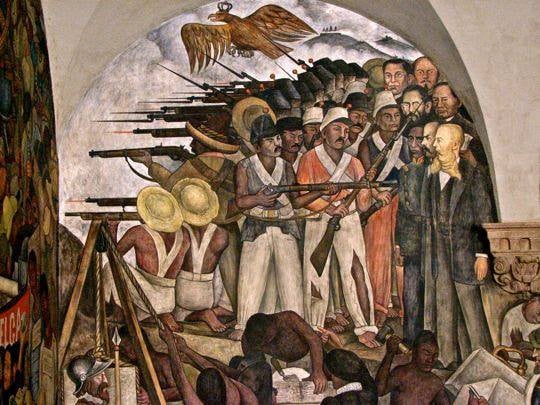
Cinco de Mayo is here, and though many people make reservations with friends to eat at their favorite taco spot, let’s hold the guacamole and margarita and take time to honor Mexican heritage.
Two Truths and A Lie:
- Mexican heritage is NOT about drinking.
- Most Mexicans don’t celebrate Cinco de Mayo.
- Cinco de Mayo is Mexico’s Independence Day.
Sadly, many people in America celebrate Cinco de Mayo because they think its Mexico’s Independence Day. However, September 16 is Mexico’s Independence Day. Cinco de Mayo is a day to honor the Battle of Puebla Day, commemorating the defeat of Napoleon III in 1862.
How Did Cinco De Mayo Celebrations Get Started in the U.S.?
In the 1960s, Chicano activists in the U.S. wanted to stand in solidarity with the civil rights movement and reclaim a time where people united, against all odds, to defeat colonialism — AND WON! The Chicano activists in the Southwest and west coast of America celebrated Cinco de Mayo to reclaim history and honor the mostly poor, primarily Afro-Mexican and indigenous soldiers, who fought against a mighty European colonial force.
The civil rights movement in the United States of North America called for solidarity across all working-class communities, especially Black and Brown communities. During this era, leaders like Cesar Chavez and Dolores Huerta organized farmworkers, undocumented youth, and housing advocates to stand up for human rights. In a ploy to grow closer to this young and vibrant growing population, corporate America promised to make donations across several organizations in exchange for joining the Cinco de Mayo celebrations. Sadly, it wasn’t long before mass marketing campaigns took over the day and co-opted the movement with Drink-O-Mayo slogans. By the 1990s, thanks to the commercialization of the day, many people in America had no idea what Cinco de Mayo represented, but we knew it was a day to celebrate with a drink.
What to do this Cinco De Mayo?
As individuals who care about justice, it is always good to be mindful of our actions and how we can unknowingly contribute to negative stereotypes. Suppose we want to celebrate Cinco de Mayo with food and drinks; at the bare minimum, we should celebrate with foods embraced by Mexican culture (sorry, Mexicans do not eat burritos) and purchase food items from Latinx-owned companies.
More importantly, we can also honor the many people of Mexican ancestry who struggled to uplift social justice demands for human rights. Today, Mexicans still struggle to be treated with respect and dignity. Books to read to learn more about US-Mexico’s history:
- The Border Crossed Us: The Case for Opening the US-Mexico Border by Justin Akers Chacón
- No One is Illegal: Fighting Racism and State Violence on the U.S.-Mexico Border by Justin Akers Chacón and Mike Davis
